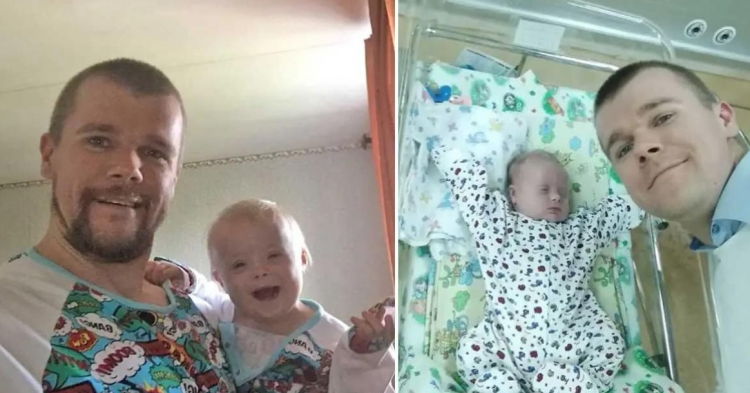When 33-year-old father Evgeny Anisimov first heard that his baby boy was going to be born with Down syndrome, he began weeping. “I fear that your baby has Down Syndrome,” the doctor informed him when his son was born. He quickly felt ashamed of his reaction and resolved never to show such fragility again – vowing to shower his kid with all of the love and attention he could manage.
“In my life, after all, nothing had changed, in general. I was still with two arms with two legs. My professional knowledge had gone nowhere,” he stated. “My determination, activity, curiosity, and so on—everything was with me. Everything happened as I planned. My son was born. But the child is special. His life and future destiny are already very significant.”

Because his kid was diagnosed with Down syndrome, he started researching the condition on the computer. He went through everything he could since he wanted to be a great father and support his kid in the ways that were necessary.

“I learned that in Europe, people with Down Syndrome are well-socialized and can live and work independently. But the decision I had already made was not influenced by that,” he stated.
Evgeny was eager to raise his child, but his wife had a different idea. She wanted the baby to be given to foster care because he had Down syndrome. He attempted to persuade her not to give birth; however, she was unwilling to parent a youngster with special needs. As a result, the pair split up, and Evgeny was left as a single father responsible for raising his kid on his own.

“Now I understand that she was just scared at the time. She started to act according to the wrong scenario, and by then, the Rubicon was already crossed, and it was too late to retreat from the scenario,” he stated.

By himself, without help from his ex-wife, Evgeny has been working hard to raise his son Mishka.
“I understand that the future might bring more issues, but I hope that we will be able to overcome everything,” the lovely father added.

He also wants people to learn more about Down syndrome because of his experience, believing that if he can get some attention for it, it might help raise awareness about the issue. He wishes to educate others about the condition.

“I want all the articles about Mishka and me that are being published now to convey that idea to society and instill it. And I also want to support and inspire with my example those people who are or will be in the same situation as me,” he said. “I try to communicate with those who are within reach. I correspond with those who are far away. I hope that those who have difficulties now, as it was for us, read about us: Have no fear! Everything will be fine!”
